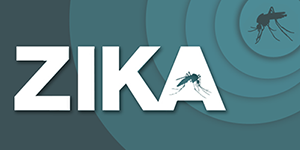AUCD Statement on Zika Virus
September 23, 2016

|
WASHINGTON, DC - Given that the Zika virus is now spreading locally in the US, a whole cohort of babies may now be born with this virus. "There is an urgent need to educate public health practitioners on developmental monitoring, screening, early identification of issues, and how to speak sensitively with families about their concerns," said Andrew Imparato, Executive Director of the Association of University Centers on Disabilities (AUCD), a nationwide organization dedicated to advancing leadership on issues of health, inclusion, and social justice for all people with disabilities and their families.
Babies born with Zika may experience a spectrum of needs from the most severe cases of microcephaly, a serious condition where an infant's head is smaller than average, to vision problems, hearing loss, seizures, intellectual disabilities, reduced speech and language abilities, and other long-term developmental disabilities.
The Centers for Disease Control and Prevention (CDC) estimates that the lifetime cost of care for a baby born with microcephaly is at least $10 million. "As babies affected by Zika become toddlers and children, it is important to understand the issues that may affect them during the critical birth to age five growth period," said Dr. Adriane Griffen, AUCD's Senior Director of Public Health and Leadership.
Even though babies born with Zika may look typical at birth, subtle changes that turn into serious problems could occur as they become older. Ongoing developmental screenings and early identifications are necessary to be able to detect these changes. Monitoring milestones of development and early intervention programs for infants and toddlers born with Zika are a critical part of support systems.
Sensitive language that supports these children and their families is essential. Every person deserves respect in words and actions of public health practitioners.
AUCD's Leadership Education in Neurodevelopmental and related Disabilities (LENDs) programs provide interdisciplinary training to graduate level students, so that these students are able to apply interdisciplinary knowledge on disability to their work. AUCD's University Centers on Excellence in Developmental Disabilities (UCEDDs) work to include people with disabilities into every aspect of their community. These LENDs and UCEDDs play a role in early intervention, health care, community-based services, education, and transition related issues.
AUCD also works with 45 Act Early Ambassadors across the US to help improve developmental monitoring and early identification practices in their state. AUCD's UCEDDs, LENDs, and Act Early Ambassadors stand ready to collaborate with public health partners as they move forward in this important work.
###
The Association of University Centers on Disabilities (AUCD), located in Silver Spring, MD, promotes and supports a national network of interdisciplinary centers on disabilities. The members of AUCD represent every U.S. state and territory. AUCD and its members work to advance policy and practice through research, education, leadership, and services for and with individuals with developmental and other disabilities, their families, and communities. For more information, visit AUCD's website, www.aucd.org.







